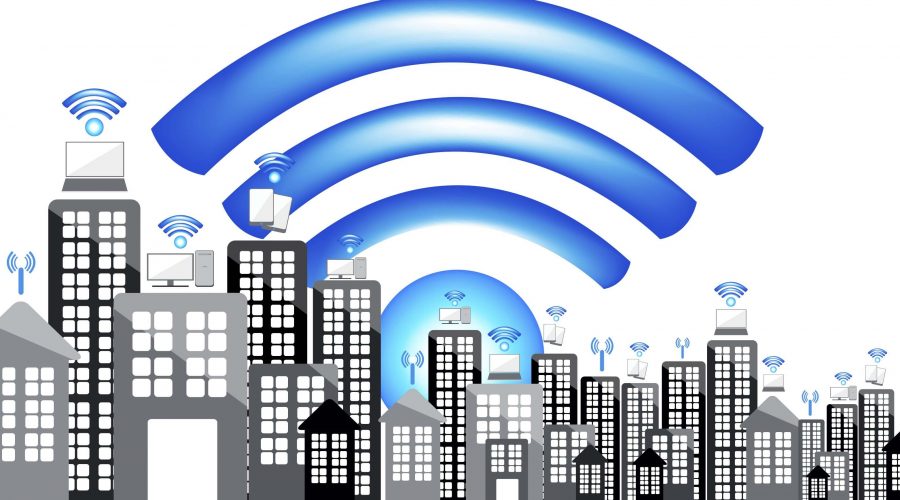Ways To Stay Safe On Public Wi-Fi Networks
Who doesn’t like free Wi-Fi? A person would be a fool to pass up on such free meal. People have become dependent on Wi-Fi as we are dependent on oxygen. It is because the world has shrunk to our smartphones and laptops as whatever work we have, it is only a click away.
You need to order food, book a cab, need tickets to your favorite show, send an important work related email and you name it, and with a Wi-Fi connection, you can do it all. Also, Wi-Fi is important because it saves you data if you use or mobile phone carrier’s plan or if it’s the library/airport you are working from. But free Wi-Fi is not all fun and games because your privacy and personal information are exposed. It is at risk of hackers’ attack of which the most common is identity theft.
In this article, we will list down few steps through which you can stay safe and surf securely on a free Wi-Fi
Practice Good Internet Hygiene
Apart from exercising tools and software that promises to make your surfing experience safe is by practicing certain good internet hygiene. You talk to any rational person and he would tell you that be wary of entering your personal information when using an open Wi-Fi network. It may be good for reading blogs and/or accessing new but not for entering private info such typing in details to avail online banking services. It’s a BIG no!
Turn off File Sharing and AirDrop Options
If you cannot control the network you are on, you can still control your computer, right or whichever device you are accessing the internet from. There are always some networks that your PC/laptop/smartphone considers as a trusted ones and the devices around as trusted computers.
For Windows users, it is advisable to turn off sharing and enable built-in system firewalls. Keep the usage of internet connected apps and services to a low. For Mac users, they can go an extra mile by setting AirDrop to contacts only option. Don’t forget to automate these settings so once you are back home it switches that secure network to yours.
Turn Wi-Fi off When Not in Use
Basics of Wi-Fi security is to keep it off when not using. Trust me, it is a healthy and a secure habit to adopt as it will protect you from unwanted networks showing up in your list of connections when you are not in the mood to access the online world.
Plus it will also save the battery and will refrain you from giving into the temptation of connecting to a free Wi-Fi facility at the sight of it. You can even setup a timer where your Wi-Fi connection will be automatically switched after a period of inactivity (possible on both Mac and Windows).
You can download copies of your email and documents you think you will be requiring to work with at a later stage, perhaps when in travel so that you these files are protected and you do not have to look for free Wi-Fi in order to download and work with them. Google Drive offline can come in real handy when you don’t have access to internet access. Look for do my coursework help online. Moreover, carry that movie or playlist on your phone in the absence of a connection.
Use Semi-Open Wi-Fi Networks Instead
Many times we don’t have a choice over what network to connect when browsing for connections, whichever you will be naturally inclined to connect to that one. But you do have a choice, instead, opt for the ones that say “semi-open”. These are the ones which have passwords/SSIDs concealed and revealed either via on the receipts of your purchase such as at a nearby coffee shop.
Why these are preferable because the connectivity is not being handed out to anyone or to everyone for free unless you engage with them first as in buying a cappuccino at their place above. In addition, you can look up on Google Places or Yelp to find these passwords.
If you choose to work at an information desk at the airport, library desk or at coffee shop counters, you are still safe as here your usage is exclusive and you are protected from prying eyes as opposed to when you are on networks where hordes of people are connected.
Use the Right Networks (and Avoid the Bad Ones)
Not every Wi-Fi (public ones) is same. It would be a lot wiser if you choose to use the Wi-Fi facility of the coffee shops, retail stores etc. than using the open Wi-Fi of the airport. Logically speaking, an airport covers a large area and relative to it, other places are operating in a limited vicinity and often times offer password protected Wi-Fi service. Although, the input of sensitive information should still be avoided.
There are certain apps designed to combat such ambiguity, which will automatically direct you towards the most suitable ones to connect to. Also, if the connections scream “Free Wi-Fi Here!” or “Absolutely Free Internet!” they are one hundred percent there to entrap you.


Leave a Reply
You must be logged in to post a comment.